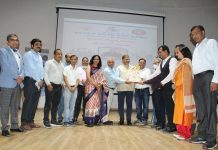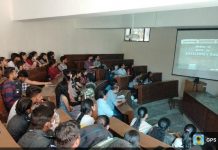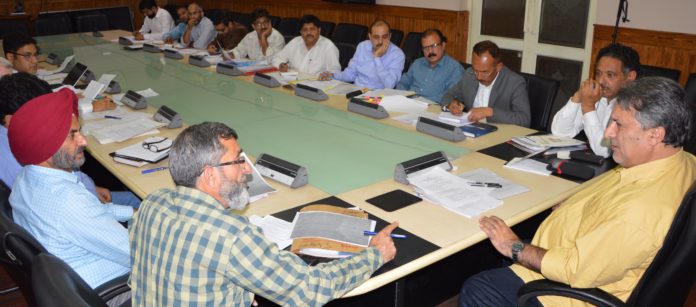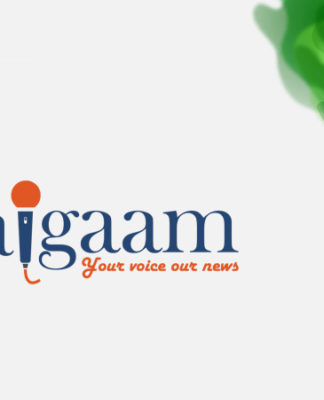SRINAGAR, SEPTEMBER 24: Principal Secretary Animal, Sheep Husbandry and Fisheries Departments, Dr Asgar Samoon, today chaired a meeting at the Civil Secretariat to finalize the new Livestock Policy that will regulate the process of animal breeding and significantly increase the milk production in J&K by 2023.
Samoon said J&K Bovine Breeding (Regulation of Production & Sale of Bovine Semen, Artificial Insemination Services and Other Bovine Upgradation Services) Act 2018 aims to increase the annual milk production in Jammu and Kashmir from 2756 thousand metric tonnes to 4076 thousand metric tonnes.
“It will be done by carrying out 24 lakh annual artificial inseminations by 2023 with an increase of nearly four lakh artificial inseminations which will expand the coverage from 23 percent animals to 53 percent. The larger aims of the policy is to reduce the state’s dependency on neighbouring states for milk,” Samoon said, adding that the new policy will also regulate the use of semen and animals from the state as well as outside in breeding process.
The Principal Secretary stressed the officers of the department including SKAUST to take corrective measures for the preservation of Crossbred varieties of bovines including cows and buffaloes as such animals give a high yield of milk. Samoon said such steps will also open up new avenues of employment for youth of Jammu and Kashmir.
“It is also important that the SKUAST campuses at both Jammu and Srinagar carry out animal breeding. Our scientist community needs to focus on evolving a culture of research for developing new and better breeds of animals,” he said.
Samoon also called for enhancing the rates at which private players collect milk from farmers which is processed and later sold in a packaged form in the market, “There is a huge gap between the market price of milk and the rate at which farmers sell it to private players. This gap needs to be reduced so that farmers are benefitted as well as private players,” he said.
The meeting was informed that the state of Jammu and Kashmir has a bovine population of 1800000 which includes 864000 Crossbred and 936000 nondescript varieties with average lactation yield of five litres per day. While the average yield of nondescript bovine is two litres per day, the figure stands at 8.25 litres per day for Crossbred varieties.
Officials said the policy aims at increasing milk yield of nondescript varieties from two to five litres by 2023 and of Crossbred/Exotic from 8.25 to 10 litres. With this intervention, annual milk yield by nondescript cattle will go up to 1432 thousand metric tonnes by 2023 and by Exotic/Crossbred varieties to 2644 thousand metric tonnes
Samoon directed the concerned to finalise the policy at the earliest by incorporating rules and regulations for Fish with latest data on livestock statistics and health of the overall livestock sector in Jammu and Kashmir. The issues involved in the implementation of new livestock breeding policy, action plans and timeline and steps required to meet the deadlines were also discussed in the meeting.
The Principal Secretary stressed on development and propagation of indigenous livestock breeds which are nearing extinction. He also called for immediate steps for import and introduction of new breeds of livestock to boost productivity and to curb inbreeding.
The meeting was also attended by Dr Tasleem Ganai, Director Sher-e-Kashmir University of Agriculture Science and Technology, Jammu who is also the Chairman of Breeding Policy Committee, directors of Animal and Sheep Husbandry divisions of Kashmir and Jammu, Chief Executive Officers of Livestock Development Boards of Jammu and Kashmir divisions and other senior officers of the Department.









































